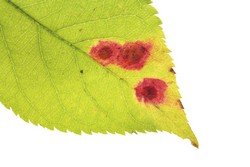EU plants protected from imported pathogens
Globalisation and modern trade have increased the volumes of plant material being moved around the world. Plants and plant products imported into European countries can carry with them foreign pests and pathogens. To ensure that they do not become established in new countries, national plant protection organisations need a reliable way to identify these undesirable organisms. The EU-funded Q-COLLECT(opens in new window) (Coordination and collaboration between reference collections of plant pests and diseases for EU plant health policy) initiative created an inventory of important plant pests and pathogens held in reference collections throughout Europe. These phytosanitary collections are important for scientists to learn more about organisms harmful to plants and also to detect and monitor their movements across borders. With phytosanitary collections scattered across European laboratories, universities and research institutes, Q-COLLECT wanted to coordinate, improve and standardise the information available from them. To create an inventory, project partners collected data on the types of plant-associated organisms contained within collections, as well as each collection's size and quality. This allowed them to identify shortcomings and to suggest how collections can better represent the diversity and distribution of important plant pathogens and pests. Q-COLLECT also developed guidelines to safely generate reference samples of quarantine organisms. These are potentially harmful plant pathogens that are either not yet present or not widely distributed within the EU. Since importing these organisms into the EU is prohibited, reference samples can be used to screen plant material entering and leaving Europe. To give researchers access to reference collections and databases of quarantine organisms, Q-COLLECT developed a web portal. This connects physically separate phytosanitary collections online, allowing a greater number of reference species to be accessed in one place. Decreasing the risk of contaminated cargo entering or leaving the EU will help to protect Europe's plants against foreign pests and pathogens. This will also ensure that the EU continues its good relationship with trading countries.







